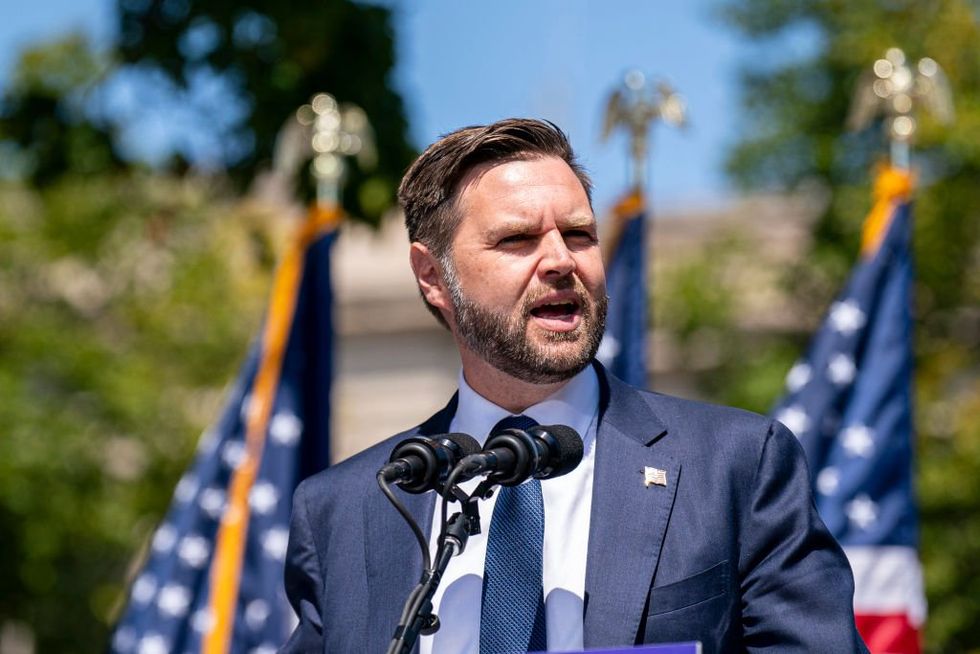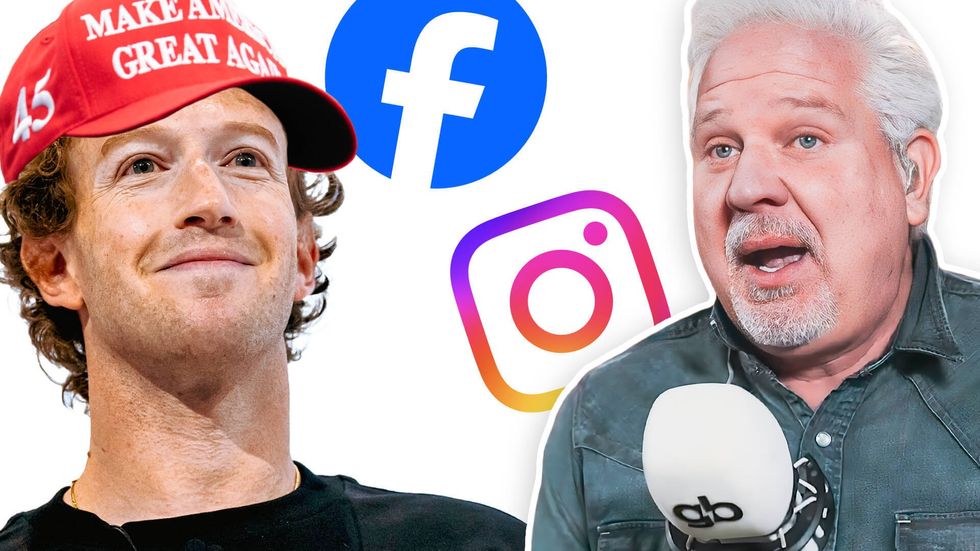JD Vance exposes how the US surveillance state helps China spy on Americans
Is China spying on us? Is the U.S. government making it easier for the Chinese to spy on us? The answer is obviously yes, but there’s been a convergence of the two countries eavesdropping on Americans. Ever since the horrific events of September 11, 2001 (and some years before that, to a lesser extent), surveillance by our government has been the new normal for Americans. However, it is now coming to light that the surveillance apparatus may make it easier for our enemies to spy on us, too. JD Vance brought up this issue in a recent conversation on "The Tim Dillon Show," during which he critiqued big government and surveillance and discussed threats to national security. He mentioned a recent Chinese cyberattack, which shed light on this issue. According to the original report from the Wall Street Journal, China recently hacked U.S. service providers, notably including AT&T and Verizon, using America's “wiretap” infrastructure. JD Vance cited this article and criticized the surveillance network that made this cyberattack possible. He said, “We’re creating a back door in our own technology networks that our enemies are now using.” He explained, “My understanding is that part of the infrastructure that they hacked into was built on top of surveillance systems that were implemented in 2001 — Patriot Act-style stuff.” The Patriot Act, according to another report on this interview, aimed to “enhance national security by expanding the surveillance and investigative powers of U.S. law enforcement agencies. Key provisions included increased authority for monitoring phone, email, and financial records, improved information-sharing between government agencies, and broader powers.” This law was enacted in the wake of the horror of 9/11, but its intended purpose has been corrupted in the continued expansion and application of its provisions. However, this is only one of several laws that have created the back door that our adversaries exploit. For instance, the Communications Assistance for Law Enforcement Act was enacted in 1994 to “require that telecommunications carriers and manufacturers of telecommunications equipment design their equipment, facilities, and services to ensure that they have the necessary surveillance capabilities to comply with legal requests for information.” Simply put, service providers need to design their systems in a way that allows for government surveillance. Or, even more simply, it requires a "back door." “Back doors,” as the president of Signal, Meredith Whittaker, wrote, are inherently flawed: “There's no way to build a back door that only the ‘good guys’ can use.” Vance brought two important issues into the conversation in light of this recent national security breach: the tyranny of bloated government and the threats to national security. The government created a surveillance apparatus and has continued to encroach on Americans’ privacy, yet our adversaries are now exploiting this same vulnerability. Earlier in the conversation, Vance brought up the sharp contrast between what the government cares about and what matters to everyday Americans. Vance sarcastically remarked: “I want to speak from the heart here, to my fellow Americans, who are really worried that a CIA bureaucrat making $190,000 a year might have to find a job in the private sector. I recognize that that is the biggest crisis facing my fellow Americans, not that they can’t afford groceries and housing.” He added, “In Kamala Harris’ defense: Yes, she’s made it harder for Americans to afford housing, but that’s been in the service so the CIA can more easily spy on our fellow Americans.” Sounds like a lose-lose situation.


Is China spying on us? Is the U.S. government making it easier for the Chinese to spy on us? The answer is obviously yes, but there’s been a convergence of the two countries eavesdropping on Americans. Ever since the horrific events of September 11, 2001 (and some years before that, to a lesser extent), surveillance by our government has been the new normal for Americans. However, it is now coming to light that the surveillance apparatus may make it easier for our enemies to spy on us, too.
JD Vance brought up this issue in a recent conversation on "The Tim Dillon Show," during which he critiqued big government and surveillance and discussed threats to national security. He mentioned a recent Chinese cyberattack, which shed light on this issue. According to the original report from the Wall Street Journal, China recently hacked U.S. service providers, notably including AT&T and Verizon, using America's “wiretap” infrastructure.
JD Vance cited this article and criticized the surveillance network that made this cyberattack possible. He said, “We’re creating a back door in our own technology networks that our enemies are now using.” He explained, “My understanding is that part of the infrastructure that they hacked into was built on top of surveillance systems that were implemented in 2001 — Patriot Act-style stuff.”
The Patriot Act, according to another report on this interview, aimed to “enhance national security by expanding the surveillance and investigative powers of U.S. law enforcement agencies. Key provisions included increased authority for monitoring phone, email, and financial records, improved information-sharing between government agencies, and broader powers.” This law was enacted in the wake of the horror of 9/11, but its intended purpose has been corrupted in the continued expansion and application of its provisions. However, this is only one of several laws that have created the back door that our adversaries exploit.
For instance, the Communications Assistance for Law Enforcement Act was enacted in 1994 to “require that telecommunications carriers and manufacturers of telecommunications equipment design their equipment, facilities, and services to ensure that they have the necessary surveillance capabilities to comply with legal requests for information.” Simply put, service providers need to design their systems in a way that allows for government surveillance. Or, even more simply, it requires a "back door." “Back doors,” as the president of Signal, Meredith Whittaker, wrote, are inherently flawed: “There's no way to build a back door that only the ‘good guys’ can use.”
Vance brought two important issues into the conversation in light of this recent national security breach: the tyranny of bloated government and the threats to national security. The government created a surveillance apparatus and has continued to encroach on Americans’ privacy, yet our adversaries are now exploiting this same vulnerability.
Earlier in the conversation, Vance brought up the sharp contrast between what the government cares about and what matters to everyday Americans. Vance sarcastically remarked: “I want to speak from the heart here, to my fellow Americans, who are really worried that a CIA bureaucrat making $190,000 a year might have to find a job in the private sector. I recognize that that is the biggest crisis facing my fellow Americans, not that they can’t afford groceries and housing.” He added, “In Kamala Harris’ defense: Yes, she’s made it harder for Americans to afford housing, but that’s been in the service so the CIA can more easily spy on our fellow Americans.”
Sounds like a lose-lose situation.
Originally Published at Daily Wire, World Net Daily, or The Blaze
What's Your Reaction?

































































































